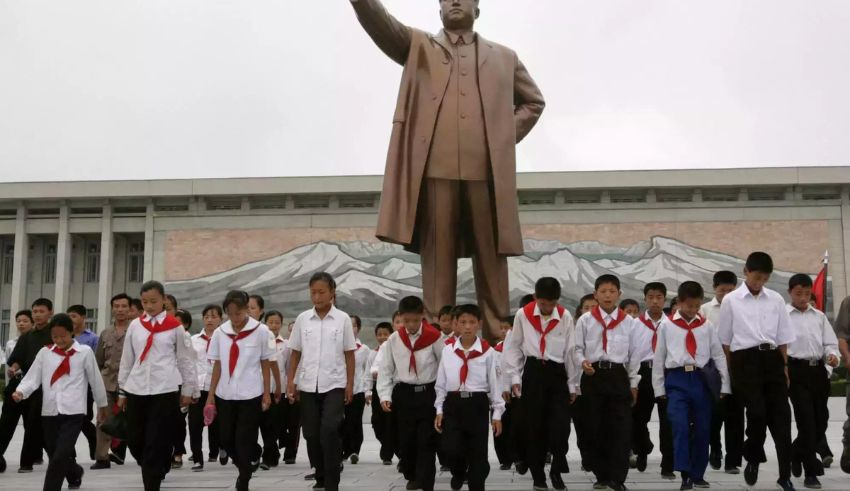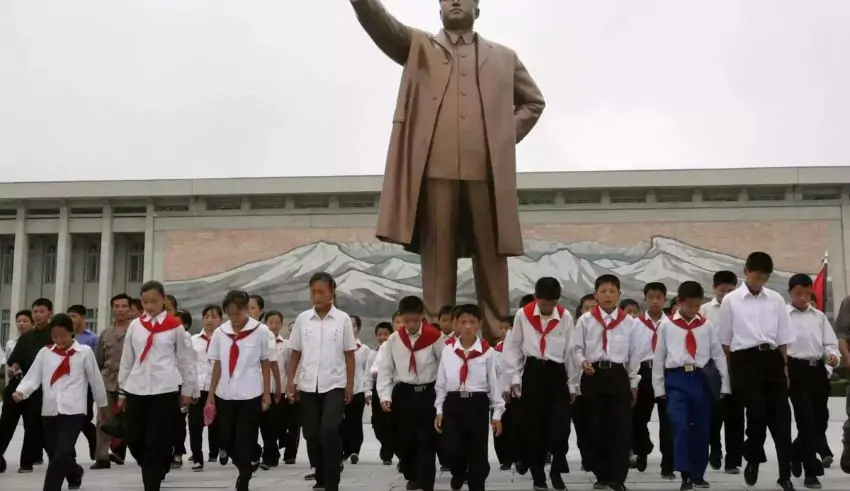

(C) Business Insider India
North Korea, one of the most isolated and repressive countries in the world, has imposed harsh punishments on its citizens who watch or distribute South Korean shows, which are banned by the regime.
A rare video footage, obtained by a South Korean research group, shows two teenage boys being sentenced to 12 years of hard labor for watching K-dramas, or South Korean TV shows. The video reveals the extent of the crackdown and the propaganda that the regime uses to deter and demonize the consumption of foreign media.
K-dramas are South Korean TV shows that cover various genres and themes, such as romance, comedy, thriller, historical, and fantasy. K-dramas are known for their high production quality, captivating plots, attractive actors, and catchy soundtracks. K-dramas have gained a huge global fan base, especially in Asia, where they have influenced the culture and lifestyle of many people.
K-dramas are also popular among some North Koreans, who risk their lives to watch them secretly. According to defectors and activists, North Koreans watch K-dramas to escape from the harsh reality and the propaganda of their country, and to learn about the outside world and the South Korean society. K-dramas also offer a glimpse of hope and freedom for the North Koreans, who aspire to a better life and a different future.
North Korea considers K-dramas as a threat to its ideology and system, and as a tool of infiltration and subversion by the South Korean government. North Korea has banned its population from watching or distributing any foreign media, especially South Korean media, and has imposed severe penalties for those who violate the ban.
In 2020, North Korea adopted the “Anti-reactionary Ideology and Culture Act,” which made watching or distributing South Korean media punishable by death. The act also stipulated that those who produce, smuggle, or store South Korean media could face up to 15 years of hard labor, and that those who sing, speak, or write in a South Korean style could face up to two years of hard labor.
North Korea also uses various methods and measures to prevent and detect K-drama viewers, such as:
K-drama viewership in North Korea has implications and challenges for the country and the region, such as:
K-drama viewership in North Korea has exposed and challenged the lies and the oppression of the regime, and has awakened and empowered the people with the knowledge and the desire for change. K-drama viewership in North Korea has also created and strengthened the ties and the understanding between the North and the South Koreans, and has fostered the hope and the potential for reunification.
K-drama viewership in North Korea has also contributed and influenced the development and diversity of the Korean culture and identity, and has enhanced the recognition and the reputation of the Korean wave.
K-drama viewership in North Korea also faces difficulties and dangers, such as:
NASA astronaut Sunita Williams intends to return to India to talk to leaders at the Indian Space Research Organisation (ISRO).…
The 2024-25 CBA season in China was an historic 30th season for the league that was filled with exciting matches,…
China, stepping ahead of possible new US tariffs, has announced new trade plans from India to bring both countries closer…
Early Tuesday morning. The fire, which could be seen from several miles away, caused mass evacuations as the authorities fine-tuned…
OpenAI's new image creation option on ChatGPT attracted many users in a short time. ChatGPT achieved its one million user…
Yuki Tsunoda has targeted a dream podium at his home Japanese Grand Prix following his surprise elevation to Red Bull.…
This website uses cookies.
Read More